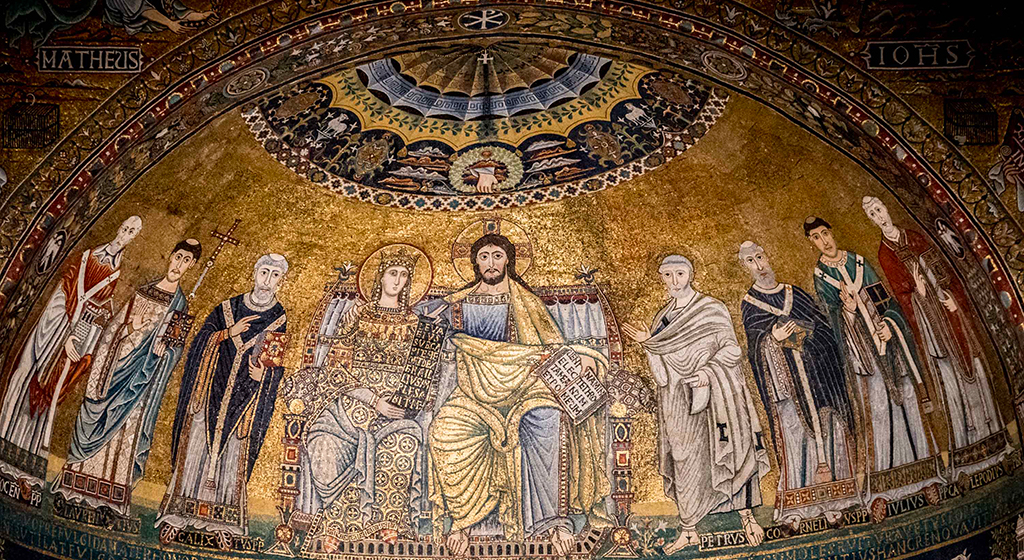Memory of the Church
Memorial of Mary Magdalene. She announced to the disciples that the Lord was risen.
Reading of the Word of God
Alleluia, alleluia, alleluia
I am the good shepherd,
my sheep listen to my voice,
and they become
one flock and one fold.
.
Alleluia, alleluia, alleluia
John 20,1.11-18
It was very early on the first day of the week and still dark, when Mary of Magdala came to the tomb. She saw that the stone had been moved away from the tomb But Mary was standing outside near the tomb, weeping. Then, as she wept, she stooped to look inside, and saw two angels in white sitting where the body of Jesus had been, one at the head, the other at the feet. They said, 'Woman, why are you weeping?' 'They have taken my Lord away,' she replied, 'and I don't know where they have put him.' As she said this she turned round and saw Jesus standing there, though she did not realise that it was Jesus. Jesus said to her, 'Woman, why are you weeping? Who are you looking for?' Supposing him to be the gardener, she said, 'Sir, if you have taken him away, tell me where you have put him, and I will go and remove him.' Jesus said, 'Mary!' She turned round then and said to him in Hebrew, 'Rabbuni!' -- which means Master. Jesus said to her, 'Do not cling to me, because I have not yet ascended to the Father. But go to the brothers, and tell them: I am ascending to my Father and your Father, to my God and your God.' So Mary of Magdala told the disciples, 'I have seen the Lord,' and that he had said these things to her.
Alleluia, alleluia, alleluia
I give you a new commandment,
that you love one another.
Alleluia, alleluia, alleluia
Today the liturgy commemorates Mary Magdalene. A woman from Magdala, she met Jesus at the beginning of his mission in Galilee and he freed her from "seven demons." The Gospel presents her standing and weeping beside the empty tomb. They had taken her Lord away. The loss of the only person who had understood her in the previous years had made her run and driven her to search for him, even though he was dead. She asks everyone about Jesus: the two angels and the "gardener." She is completely set on finding the Teacher. Nothing else interests her. This woman is still an example of the true believer in search of the Lord. She even asks the "gardener." She sees Jesus with her eyes, but she does not recognize him. She needs to be called by name. This is what we all need with the Gospel. It is not our eyes that allow us to recognize Jesus, but his voice, precisely the Gospel. That sound, that tone, that name pronounced so tenderly, which had touched her heart so many times, now cast down the barriers and Mary recognizes her Teacher in the gardener. To listen to him even just once means never to abandon him. We cannot forget the voice of Christ, the Gospel. Jesus entrusts her with the first news of his resurrection. She is a weak woman, with a difficult past, and yet Jesus makes of her his first witness. She could have been afraid that no one would believe her or that they might even insult her, just as we often think that it is crazy to believe that love is stronger than death. Mary once again listened to the voice of the teacher and was even happier as she ran towards the disciples to announce to them all, "I have seen the Lord!" The encounter with Jesus puts everything into motion. The Easter that Jesus communicated to her was not only for her; it is not only for us. It is for the entire world. She, the sinner, had become the first to announce the Gospel. She is not afraid, because she has been strengthened by the words of Jesus. This is why the Byzantine tradition calls her "the apostle of the apostles."
